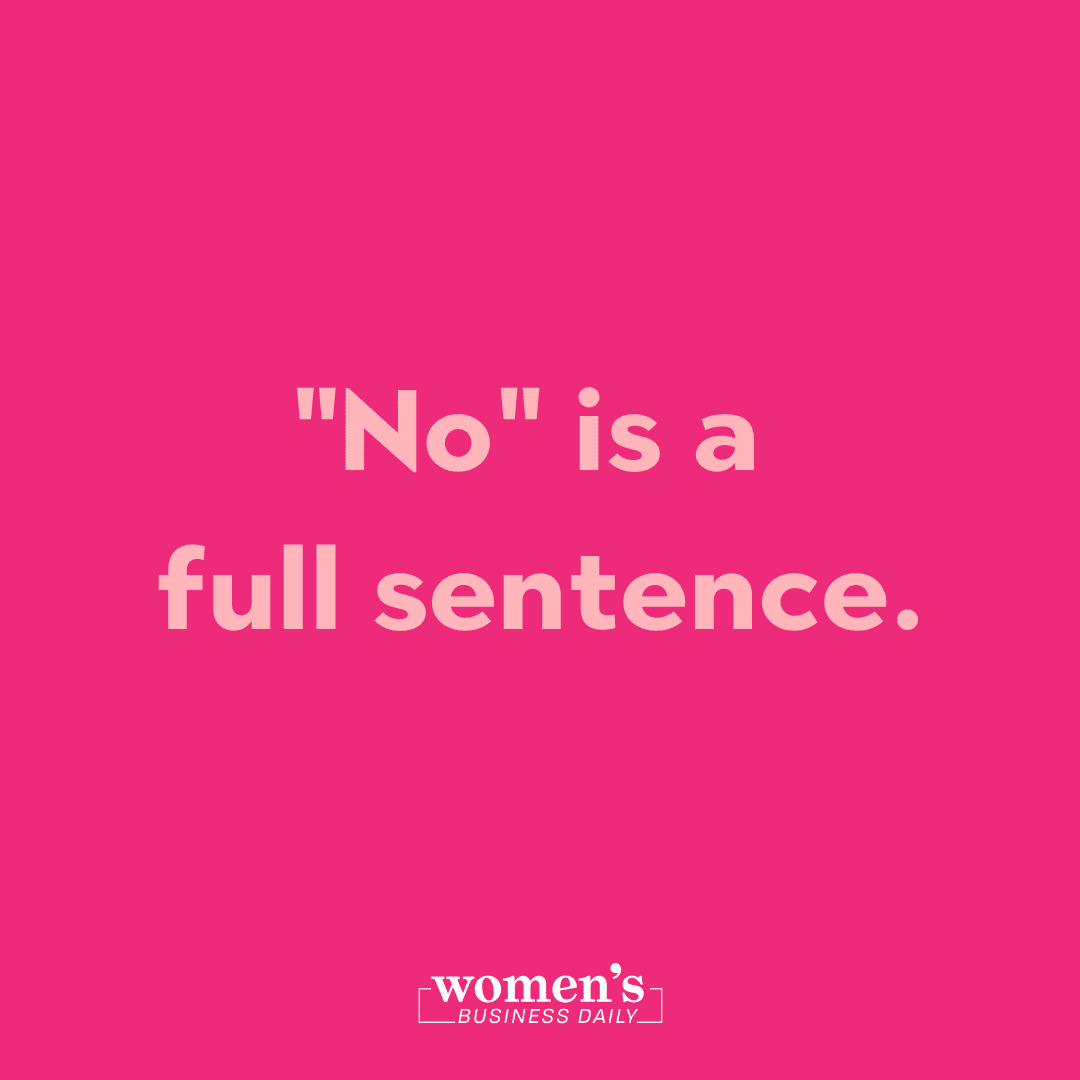The Power of No: How to Stop Being a People Pleaser

If you never say no, need everyone to like you, and fear rejection, you might be a textbook people pleaser. While you enjoy being the person everyone leans on and trusts to get things done, you’re neglecting your own needs. If you don’t change your ways soon, you’re headed straight to unavoidable burnout.
So how do you recondition yourself to put your needs first? How do you rewire your brain to stop craving everyone’s approval in every social situation? It’s not easy, but it’s essential to begin this journey towards feeling emotionally self-reliant.
The Common Causes of Being a People Pleaser
While the causes of people-pleasing behaviors can vary, the root of the issue commonly comes down to low self-worth.
The reason you need everyone else to love you is because you have difficulty accepting yourself. It’s a coping mechanism that allows you to use approval from others to replace your own sense of self-worth.
External praise validates your worth, which causes an unhealthy cycle. You need the approval of others to maintain your self-esteem, but when you put your confidence in other people’s control, you depend on them to feel good about yourself.
This reliance on the approval of others will cause you to put your needs aside in favor of helping others. While it’s nice to help other people, you aren’t doing this as a kind gesture. You’re doing it because you need them to love you. You see their approval as conditional. You think, if I don’t do this task for them, they won’t like me. You enter dangerous territory when you tie your worth to your productivity purposes only.
Why You Shouldn’t Try To Please Everyone
People pleasing allows you to avoid working on your anxiety and negative self-perception. Left unchecked, you’ll experience burnout and in the event, you don’t get the approval you need, you’ll spiral.
Not only do you have a corrupted sense of self-worth, you also can’t see that people could love you for you.
As Luisa says in Disney’s Encanto, “I’m pretty sure I’m worthless if I can’t be of service.” Her own self-worth is derived from how helpful she can be. This directly causes her to overwork, and she faces insurmountable burnout.

Another common symptom of people pleasing? You need everyone to like you. You need to let this go, because it’s simply impossible to achieve.
The only way you can be liked by everyone is by watering down your personality and standing for nothing. Even then, some people won’t be able to respect you as you’ll come across as spineless and disingenuous.
You need to let go of this idea that you can get everyone to love you. Once you accept that not everyone will love you, you give yourself permission to truly be yourself.
Think about it; you can’t possibly like everyone you meet. Why would you waste time trying to mask who you are just to please people that you don’t even like?
This isn’t an excuse to be mean to people. It’s just a reminder that you don’t have to turn into a chameleon, changing yourself just to fit in wherever you are. And pretending to be someone else is exhausting.
How to Stop Being a People Pleaser
So you’re a self-diagnosed people pleaser.
How do you break the habit to stop being a people pleaser?
Here are some of the key ways you can train yourself to stand up for yourself and put your own needs first.
Learn to Say No
The number one most dangerous people-pleasing behavior is the inability to say “no” and “I can’t.” You’ve crafted your identity around being the person everyone can rely on to get things done. In doing so, you’ve surrendered all your free time to make everyone else’s lives easier.
But what about your life?
Frame it this way; think when I say yes to others, I am saying no to myself.
Say yes to your needs and your mental health by saying no to others everyone once in a while. And realize that “no” is a full sentence. There’s no guilt in it.

Learn the Importance of Setting Boundaries
One of the most common symptoms of being a people pleaser is letting people walk all over you.
To avoid complete burnout and total emotional destruction, you need to set boundaries.
There are people out there who will take a mile with every inch you give. If you don’t set boundaries for yourself, your people pleasing tendencies will take over as soon as they ask for more.
Does your boss always ask for things after hours? Make a rule that you don’t respond after 6pm. Even better, set up your phone so that no work notifications can come through during your off-hours.
Does your mother in law always insist on coming over every weekend? Decide which weekends she can come and tell her firmly you have plans the rest of the time.

Learn to Let Things Go
When you’re people pleasing, you’re doing everything you can to make other people happy. So what happens when they aren’t happy?
You probably take it personally.
You have to accept that people have lives outside of your relationship. If someone only gives you one-word answers in the employee lounge, you might immediately think they’re mad at you.
Have you considered that they have other things on their mind? They might have gotten some upsetting news and don’t want to talk to anyone at all.
Don’t spend your precious time and energy constantly asking for validation from others, worrying that they’re mad at you. Chances are they’re just having an off-day due to circumstances that have nothing to do with you.
And if they are mad at you? Do what you can to fix the situation, and if it’s out of your control, you just have to let it go.

Learn to Develop Your Own Self-Worth
You so desperately need the validation of others because you can’t feel emotionally confident in your own abilities.
Do some soul searching and ask yourself where that comes from.
Why aren’t you confident? Why can you only feel good when others offer praise? Being a people pleaser generally isn’t a case of narcissism. You aren’t fishing for compliments because you love the feeling of praise. Generally, chronic people pleasers have difficulty accepting compliments at all. You just need external validation to know that you’re “doing it right.”
So where does this lack of confidence come from? Did you grow up in a family that didn’t support you emotionally? Do you live with chronic anxiety? While fixing your people pleasing tendencies could have a simple answer, you might need to seek medical advice, diagnosis, or treatment for anxiety or PTSD. There’s no reason to feel bad about needing therapy. Therapists are there to help you get to the root of why you’re using this coping mechanism and will give you the tools to put yourself first.
You deserve to feel good about yourself.

You Don’t Need to Be a People Pleaser to Deserve Love
At the root of most people pleasers is a caring person who wants to keep other people happy. And there’s nothing wrong with being a compassionate person. In all likelihood, being a caring figure is one of your strengths.
But depending on the validation you get from others in order to feel emotionally whole will ultimately lead to your undoing. People pleasing involves putting others’ needs before your own. If you’re so busy being a people pleaser, who’s going to take care of you? You can still be a helpful, kind person without suffering under the need to always make other people love you. If you love you, the opinions of everyone else don’t matter.
Author, Artist, Photographer.
Sarah Margaret is an artist who expresses her love for feminism, equality, and justice through a variety of mediums: photography, filmmaking, poetry, illustration, song, acting, and of course, writing.
She owns Still Poetry Photography, a company that showcases her passion for capturing poetic moments in time. Instead of poetry in motion, she captures visual poetry in fractions of a second, making cherished keepsakes of unforgettable moments.
She is the artist behind the Still Poetry Etsy shop, which houses her illustrations and bespoke, handmade items. She is the author of intricacies are just cracks in the wall, a narrative poetry anthology that follows a young woman discovering herself as she emerges from an abusive relationship.






Responses